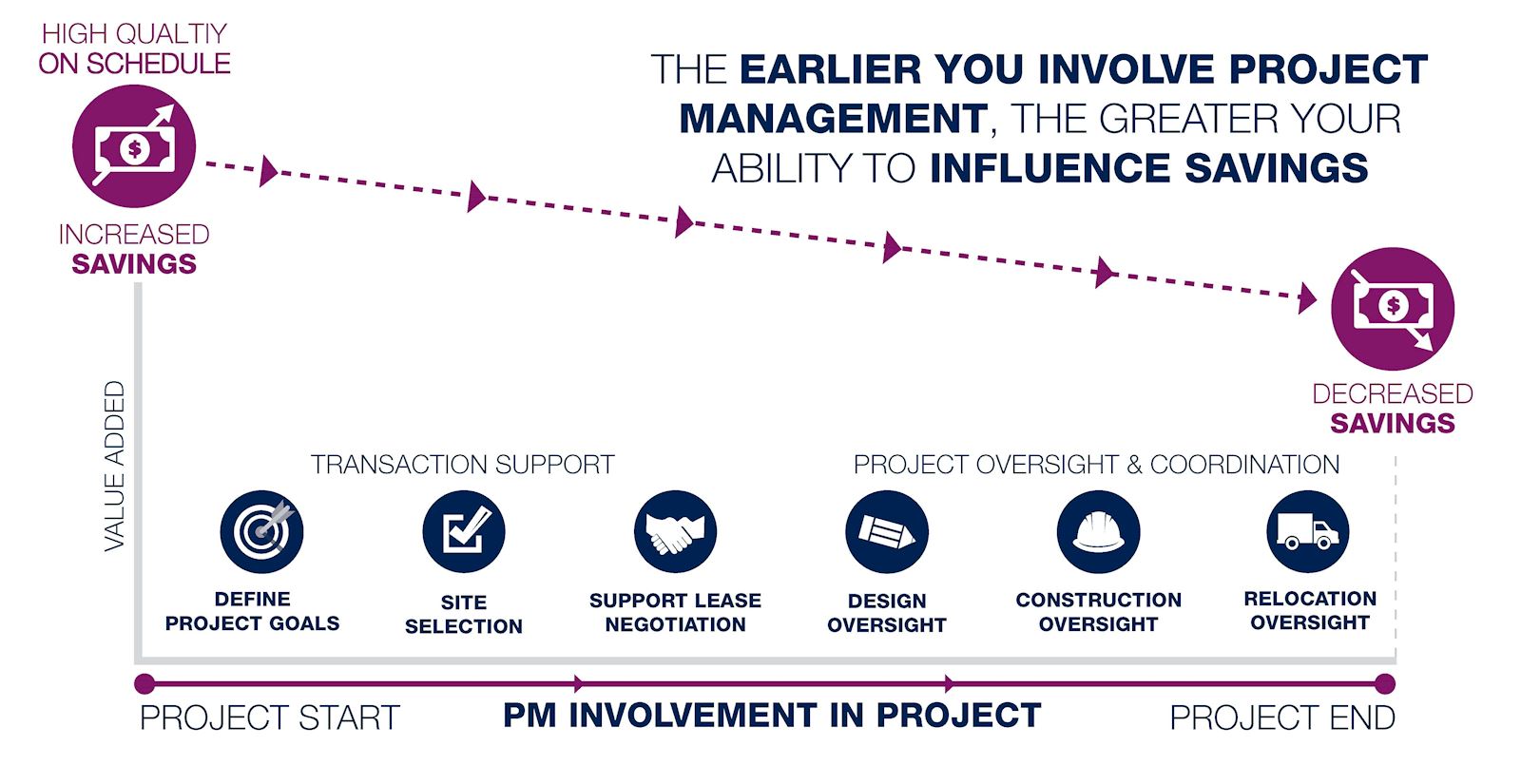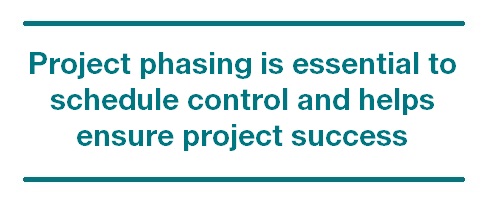Many tenants begin build-to-suit or tenant improvement projects with internal company resources, but find as the project progresses they lack the requisite knowledge and find that the process is far more complex and time intensive than originally thought. This overestimation of capacity can lead to significant time delays and budget problems for the tenant that cause the project to quickly spiral out of control.
What to Look for in a Commercial Real Estate Project Manager
Project managers bring expertise to many facets of a construction project and are ultimately responsible for the success or failure of the project, and more importantly, the tenant’s satisfaction. A skillful project manager plans, organizes, and oversees all aspects of a project. A project manager must have exceptional communication and planning skills, be detail oriented, have an ability to tactfully influence positive decision making, and possess the ability to hold key stakeholders accountable. Managing a real estate project takes a great deal of coordination and time to ensure a successful outcome. Projects are a series of inter-dependent tasks and even the smallest actions can have broad implications for the project. So why involve a project manager in these essential tasks at the start of a project?
Ensuring Accountability
An effective project manager sets in place a communication system from the beginning of any project. This communication plan keeps all stakeholders informed and holds them accountable throughout the project, increasing the likelihood that the project will have a successful outcome.
Advantages of Having a Dedicated Project Manager
Successful project managers also possess specific expertise and knowledge that helps them to successfully navigate interactions and project details with each stakeholder. They are the ‘watch dog’ for the project, controlling every detail of budget, schedule, and quality. The advantages a project manager brings to the table are numerous.
- Productive project phasing for successful schedule control
- Quality control through expertise in construction and materials
- Effective risk management and identification through action plans
- Efficient allocation of responsibilities and monitoring work
- Practical site organization and administration
- Effective people management and managing team dynamics
- Contract negotiation
- Expertise in value engineering
- Control of change orders and cost escalations
A project manager that represents the tenant not only provides value in project oversight but, also in protecting the tenant’s best interests. The interests of landlords, architects, and general contractors are not always aligned with the tenant’s best interests, but by exclusively working for and advising tenants, project managers are the tenant’s advocate and can often save the client money that exceeds the project management fee. Overall, a tenant can save time and money without sacrificing an exemplary end product by taking advantage of the services a project manager can offer.




